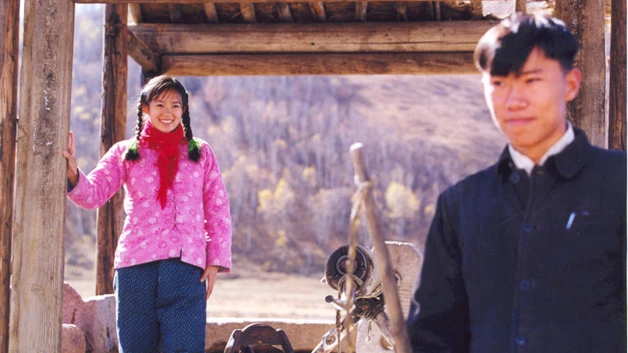Not One Less Film Difficulty Ranking: 2
What do you do when you mother is dying and you need to find a replacement teacher to do your job whilst you go visit her? You find a 13 year old girl from a neighboring town that hasn’t been to high school to take over from you for a month. What could go wrong? Find out here (buy to watch on Amazon).

Why Watch Not One Less?
- Learn from the world’s youngest substitute teacher – a 13 year old girl from rural China
- For a 5 minute teaching masterclass – who needs qualifications?
- Experience life as a kid in rural China and see how it contrasts with life as a kid in the city
- If you like Italian neo-realism and/or coming of age films
The Breakdown
Not One Less starts with the arrival of the substitute teacher named Wei. She’s only 13 and hasn’t completed high school yet. But as it’s just a month and this rural town has no one else remotely qualified to teach their kids, she seems like a great option.
Before the actual teacher goes, he gives her a 5 minute 101 in teaching. Here are the golden rules:
- Let the students go home, when the sunlight reaches this stick
- Copy these lessons for the students to write – one a day
- Don’t use too much chalk (it’s expensive)
- Sing one song a day
It doesn’t sound too hard. As he leaves, he promises to give her 50 Yuan for her month’s work, and an extra 10 if she keeps all the students until he gets back. Just for perspective, a ticket to town on the bus costs around 20 Yuan. The pay is poor, but it’s what drives this 13 year old substitute teacher – she does whatever she can to keep these kids until the teacher returns for that extra 10 Yuan.
However, as you’ll see, this extra clause is a harder than it might seem. Firstly, as expected, she’s not a great teacher. She doesn’t ‘teach’ the kids, as she just writes on the board, tells the kids to copy it down, and sits outside the exit to block anyone from escaping early. Secondly, her students are poor. One is moved to an athletic school under the promise that her life might be better elsewhere, and another is taken out of school to go work in the city. So what does she do? She turns her lessons into a mission to get them back to school encouraging the students to help her in her quest. If it weren’t for the promise of money, she would be the most caring teacher in the world.
Conclusion and What to Watch Next
Wei learns a lot in this film, and so do we. We learn about the Chinese education system, poverty, work, local politics, salesmanship, marketing, the consequences of cheating, and more. Even though this film is about teaching, it shows us that the most valuable lessons are learned outside the classroom in life itself. To learn about China and life in general, go watch this film!
For more great Chinese film, check out the following:
- The Road Home: for another film from Zhang Yimou – this one’s an emotional romance
- A Touch of Sin: a bleak, politically charged portrayal of contemporary Chinese society
- The Assassin: An art-house Martial Arts film with beautiful cinematography and choregraphy
Or, if you’re looking for more coming-of-age films in which kids are forced to grow up quickly, check out Mustang from Turkey and Abouna from Chad. I’d even recommend watching the heartwarming Kikujiro from Takeshi Kitano as well!



